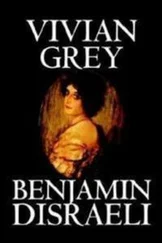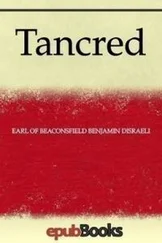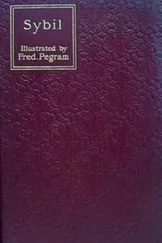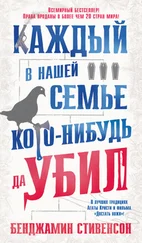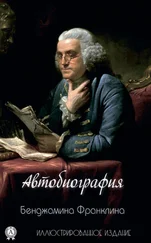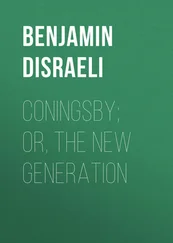Бенджамин Дизраэли - Coningsby
Здесь есть возможность читать онлайн «Бенджамин Дизраэли - Coningsby» весь текст электронной книги совершенно бесплатно (целиком полную версию без сокращений). В некоторых случаях можно слушать аудио, скачать через торрент в формате fb2 и присутствует краткое содержание. Год выпуска: 2014, Издательство: epubBooks Classics, Жанр: Классическая проза, на английском языке. Описание произведения, (предисловие) а так же отзывы посетителей доступны на портале библиотеки ЛибКат.
- Название:Coningsby
- Автор:
- Издательство:epubBooks Classics
- Жанр:
- Год:2014
- ISBN:нет данных
- Рейтинг книги:4 / 5. Голосов: 1
-
Избранное:Добавить в избранное
- Отзывы:
-
Ваша оценка:
- 80
- 1
- 2
- 3
- 4
- 5
Coningsby: краткое содержание, описание и аннотация
Предлагаем к чтению аннотацию, описание, краткое содержание или предисловие (зависит от того, что написал сам автор книги «Coningsby»). Если вы не нашли необходимую информацию о книге — напишите в комментариях, мы постараемся отыскать её.
Coningsby — читать онлайн бесплатно полную книгу (весь текст) целиком
Ниже представлен текст книги, разбитый по страницам. Система сохранения места последней прочитанной страницы, позволяет с удобством читать онлайн бесплатно книгу «Coningsby», без необходимости каждый раз заново искать на чём Вы остановились. Поставьте закладку, и сможете в любой момент перейти на страницу, на которой закончили чтение.
Интервал:
Закладка:
And now, after all, in 1841, it seemed that Taper was right. There was a great clamour in every quarter, and the clamour was against the Whigs and in favour of Conservative principles. What Canadian timber–merchants meant by Conservative principles, it is not difficult to conjecture; or West Indian planters. It was tolerably clear on the hustings what squires and farmers, and their followers, meant by Conservative principles. What they mean by Conservative principles now is another question: and whether Conservative principles mean something higher than a perpetuation of fiscal arrangements, some of them impolitic, none of them important. But no matter what different bodies of men understood by the cry in which they all joined, the Cry existed. Taper beat Tadpole; and the great Conservative party beat the shattered and exhausted Whigs.
Notwithstanding the abstraction of his legal studies, Coningsby could not be altogether insensible to the political crisis. In the political world of course he never mixed, but the friends of his boyhood were deeply interested in affairs, and they lost no opportunity which he would permit them, of cultivating his society. Their occasional fellowship, a visit now and then to Sidonia, and a call sometimes on Flora, who lived at Richmond, comprised his social relations. His general acquaintance did not desert him, but he was out of sight, and did not wish to be remembered. Mr. Ormsby asked him to dinner, and occasionally mourned over his fate in the bow window of White's; while Lord Eskdale even went to see him in the Temple, was interested in his progress, and said, with an encouraging look, that, when he was called to the bar, all his friends must join and get up the steam. Coningsby had once met Mr. Rigby, who was walking with the Duke of Agincourt, which was probably the reason he could not notice a lawyer. Mr. Rigby cut Coningsby.
Lord Eskdale had obtained from Villebecque accurate details as to the cause of Coningsby being disinherited. Our hero, if one in such fallen fortunes may still be described as a hero, had mentioned to Lord Eskdale his sorrow that his grandfather had died in anger with him; but Lord Eskdale, without dwelling on the subject, had assured him that he had reason to believe that if Lord Monmouth had lived, affairs would have been different. He had altered the disposition of his property at a moment of great and general irritation and excitement; and had been too indolent, perhaps really too indisposed, which he was unwilling ever to acknowledge, to recur to a calmer and more equitable settlement. Lord Eskdale had been more frank with Sidonia, and had told him all about the refusal to become a candidate for Darlford against Mr. Millbank; the communication of Rigby to Lord Monmouth, as to the presence of Oswald Millbank at the castle, and the love of Coningsby for his sister; all these details, furnished by Villebecque to Lord Eskdale, had been truly transferred by that nobleman to his co–executor; and Sidonia, when he had sufficiently digested them, had made Lady Wallinger acquainted with the whole history.
The dissolution of the Whig Parliament by the Whigs, the project of which had reached Lord Monmouth a year before, and yet in which nobody believed to the last moment, at length took place. All the world was dispersed in the heart of the season, and our solitary student of the Temple, in his lonely chambers, notwithstanding all his efforts, found his eye rather wander over the pages of Tidd and Chitty as he remembered that the great event to which he had so looked forward was now occurring, and he, after all, was no actor in the mighty drama. It was to have been the epoch of his life; when he was to have found himself in that proud position for which all the studies, and meditations, and higher impulses of his nature had been preparing him. It was a keen trial of a man. Every one of his friends and old companions were candidates, and with sanguine prospects. Lord Henry was certain for a division of his county; Buckhurst harangued a large agricultural borough in his vicinity; Eustace Lyle and Vere stood in coalition for a Yorkshire town; and Oswald Millbank solicited the suffrages of an important manufacturing constituency. They sent their addresses to Coningsby. He was deeply interested as he traced in them the influence of his own mind; often recognised the very expressions to which he had habituated them. Amid the confusion of a general election, no unimpassioned critic had time to canvass the language of an address to an isolated constituency; yet an intelligent speculator on the movements of political parties might have detected in these public declarations some intimation of new views, and of a tone of political feeling that has unfortunately been too long absent from the public life of this country.
It was the end of a sultry July day, the last ray of the sun shooting down Pall Mall sweltering with dust; there was a crowd round the doors of the Carlton and the Reform Clubs, and every now and then an express arrived with the agitating bulletin of a fresh defeat or a new triumph. Coningsby was walking up Pall Mall. He was going to dine at the Oxford and Cambridge Club, the only club on whose list he had retained his name, that he might occasionally have the pleasure of meeting an Eton or Cambridge friend without the annoyance of encountering any of his former fashionable acquaintances. He lighted in his walk on Mr. Tadpole and Mr. Taper, both of whom he knew. The latter did not notice him, but Mr. Tadpole, more good–natured, bestowed on him a rough nod, not unmarked by a slight expression of coarse pity.
Coningsby ordered his dinner, and then took up the evening papers, where he learnt the return of Vere and Lyle; and read a speech of Buckhurst denouncing the Venetian Constitution, to the amazement of several thousand persons, apparently not a little terrified by this unknown danger, now first introduced to their notice. Being true Englishmen, they were all against Buckhurst's opponent, who was of the Venetian party, and who ended by calling out Buckhurst for his personalities.
Coningsby had dined, and was reading in the library, when a waiter brought up a third edition of the Sun , with electioneering bulletins from the manufacturing districts to the very latest hour. Some large letters which expressed the name of Darlford caught his eye. There seemed great excitement in that borough; strange proceedings had happened. The column was headed, 'Extraordinary Affair! Withdrawal of the Liberal Candidate! Two Tory Candidates in the field!!!'
His eye glanced over an animated speech of Mr. Millbank, his countenance changed, his heart palpitated. Mr. Millbank had resigned the representation of the town, but not from weakness; his avocations demanded his presence; he had been requested to let his son supply his place, but his son was otherwise provided for; he should always take a deep interest in the town and trade of Darlford; he hoped that the link between the borough and Hellingsley would be ever cherished; loud cheering; he wished in parting from them to take a step which should conciliate all parties, put an end to local heats and factious contentions, and secure the town an able and worthy representative. For these reasons he begged to propose to them a gentleman who bore a name which many of them greatly honoured; for himself, he knew the individual, and it was his firm opinion that whether they considered his talents, his character, or the ancient connection of his family with the district, he could not propose a candidate more worthy of their confidence than HARRY CONINGSBY, ESQ.
This proposition was received with that wild enthusiasm which occasionally bursts out in the most civilised communities. The contest between Millbank and Rigby was equally balanced, neither party was over–confident. The Conservatives were not particularly zealous in behalf of their champion; there was no Marquess of Monmouth and no Coningsby Castle now to back him; he was fighting on his own resources, and he was a beaten horse. The Liberals did not like the prospect of a defeat, and dreaded the mortification of Rigby's triumph. The Moderate men, who thought more of local than political circumstances, liked the name of Coningsby. Mr. Millbank had dexterously prepared his leading supporters for the substitution. Some traits of the character and conduct of Coningsby had been cleverly circulated. Thus there was a combination of many favourable causes in his favour. In half an hour's time his image was stamped on the brain of every inhabitant of the borough as an interesting and accomplished youth, who had been wronged, and who deserved to be rewarded. It was whispered that Rigby was his enemy. Magog Wrath and his mob offered Mr. Millbank's committee to throw Mr. Rigby into the river, or to burn down his hotel, in case he was prudent enough not to show. Mr. Rigby determined to fight to the last. All his hopes were now staked on the successful result of this contest. It were impossible if he were returned that his friends could refuse him high office. The whole of Lord Monmouth's reduced legacy was devoted to this end. The third edition of the Sun left Mr. Rigby in vain attempting to address an infuriated populace.
Читать дальшеИнтервал:
Закладка:
Похожие книги на «Coningsby»
Представляем Вашему вниманию похожие книги на «Coningsby» списком для выбора. Мы отобрали схожую по названию и смыслу литературу в надежде предоставить читателям больше вариантов отыскать новые, интересные, ещё непрочитанные произведения.
Обсуждение, отзывы о книге «Coningsby» и просто собственные мнения читателей. Оставьте ваши комментарии, напишите, что Вы думаете о произведении, его смысле или главных героях. Укажите что конкретно понравилось, а что нет, и почему Вы так считаете.
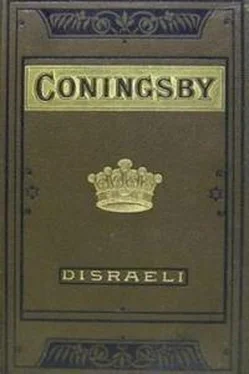
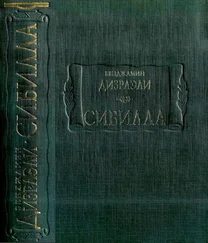
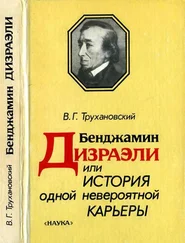
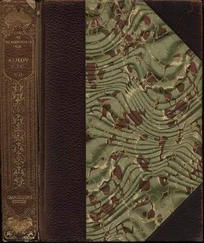

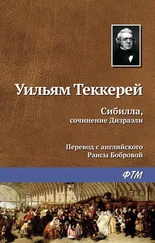
![Мелани Бенджамин - Госпожа отеля «Ритц» [litres]](/books/384861/melani-bendzhamin-gospozha-otelya-ritc-litres-thumb.webp)
